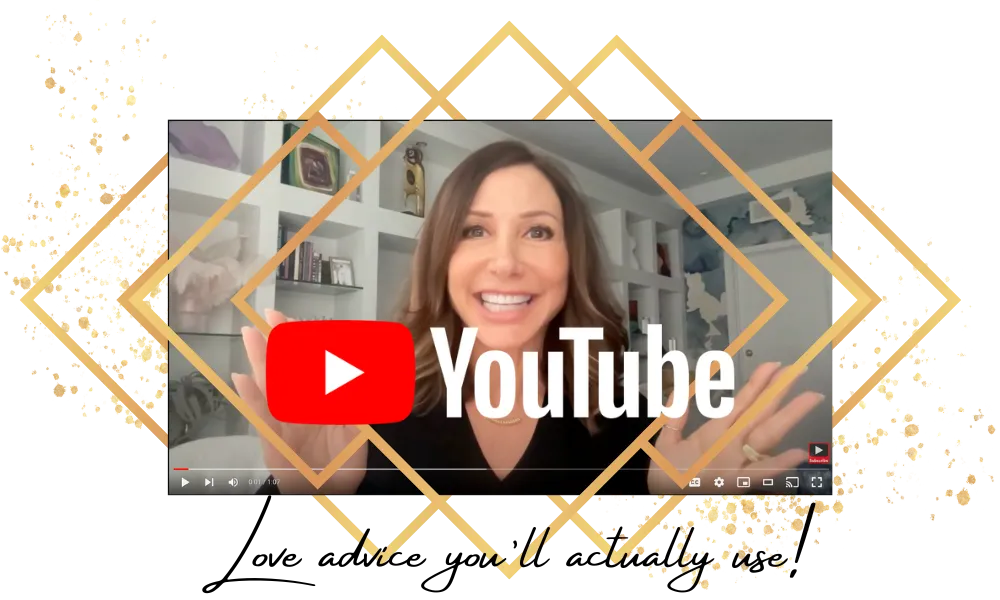
Are You Being Gaslighted? Recognizing Gaslighting in Middle-Aged Dating
Hey Sister,
I want to share something deeply personal with you, something that I went through in my first marriage: gaslighting. It was a confusing and painful experience that left me questioning my own reality and self-worth.

What is Gaslighting? Gaslighting is a form of psychological manipulation where someone makes you doubt your own reality, memories, or perceptions. It’s insidious and can creep into your life without you even realizing it.
Recognizing Gaslighting; I remember vividly one instance when I found a message on our answering machine that contradicted a story my first husband told me about where he was and who he was with. Even though there was clear evidence that he was lying, he continued to deny it, making me feel like I was going crazy. If only I had known to trust my intuition more at that tender time in my life.
Signs of Gaslighting to Look Out for When Dating
Gaslighting is especially dangerous in the dating world, and it’s crucial to recognize the signs early on. Here are some red flags to watch for when you’re dating, especially in your middle age:
Denial of Reality: The gaslighter denies things you’ve seen or heard, making you question your memory.
Withholding Information: They refuse to engage in conversations that could clarify the truth, leaving you confused.
Trivializing Your Feelings: They dismiss your feelings and make you feel like you’re overreacting.
Blaming: They constantly shift blame onto you, making you feel guilty and responsible for their actions.
Creating Confusion: They give you false information to keep you disoriented and dependent on their version of reality.
Examples of Gaslighting in Dating When You’re Middle-Aged
Example 1: The Financial Gaslighter
You start dating someone who frequently questions your spending habits or financial decisions, making you feel inadequate or irresponsible. Despite having a successful career and being financially independent, you begin to doubt your ability to manage your own money.
Example 2: The Social Gaslighter
You’re dating someone new who often contradicts your stories about recent dates or conversations. For instance, you remember discussing plans for a weekend getaway, but they insist you never talked about it, making you feel forgetful or confused. This behavior can leave you doubting your own memory and perception of reality.
Example 3: The Deceptive Gaslighter
You’re dating a man who lies about his whereabouts when he’s not with you. He tells you he’s working late or spending time with family, but you later find out through social media or mutual friends that he was out with someone else. When you confront him, he denies it vehemently, accuses you of being paranoid, and insists you misheard or misunderstood the situation, making you question your own sanity.
The Impact of Gaslighting
Gaslighting can deeply affect your mental and emotional health. It can lead to anxiety, depression, and a diminished sense of self-worth. Over time, you might start doubting your own thoughts and decisions, making it harder to trust yourself and others.
Reclaiming Your Reality
If you suspect you’re being gaslighted, here are steps to take back your power:
Trust Your Instincts: Your feelings are valid. If something feels off, trust that instinct.
Document Everything: Keep a journal of events, conversations, and feelings. This can help you see patterns and affirm your reality.
Seek Support: Talk to trusted friends, family, or a therapist. External perspectives can help you validate your experiences.
Set Boundaries: Clearly communicate your boundaries and stick to them. Don’t let the gaslighter control your narrative.
Focus on Self-Care: Prioritize activities that boost your self-esteem and well-being. Self-care is crucial for maintaining your mental health.
Educate Yourself: Understanding gaslighting and its tactics can empower you to recognize and counteract it.
Gaslighting is a manipulative tool that can deeply affect your sense of self. But remember, you have the power to reclaim your reality. You can protect yourself from this toxic behavior by recognizing the signs, setting boundaries, and seeking support.
Sister, your reality is valid. Trust in your perception, honor your feelings, and reclaim your power. You’re not alone in this journey. Together, we can navigate these challenges and emerge stronger, wiser, and more empowered.
With love and light,
Jaki
PS: Take the Soulmate Assessment and find out how close you are to attracting your soulmate!




